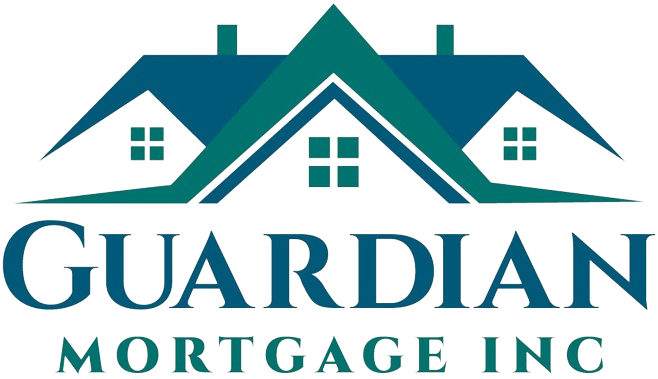A Home Selling Process, from Listing to Settlement

Although the home selling process differs depending on your current situation and location of your home, there are some steps that every seller should take before putting his/her house on the market.
Step 1- Preapproval for your new home loan (if you are moving up to another home)
We have heard the horror stories of sellers who signed a contract to sell their home before they even know if they could qualify for another one. They end up either are not able to sell at the desired price so they can’t afford the home they want or even equal to what they currently have, or else they don’t qualify financially for the loan the way they did the last time they purchased the home. They end up either renting or buying something that isn’t what they had hoped for
Before you decided to sell or accept any offers, you should get pre-approved for a new home.
Step 2- What Are Your Goals for The Sale Of Your Home?
Ask yourself:
• Why am I selling my home?
• Where do I want to live next?
• How much time do I need for completing the sale of my home?
• Will the proceeds from the sale of my home allow me to easily purchase the new home I
desire?
• Will the sale of my home make it easier to achieve my short- and long-term goals?
Answering these questions and any others will help you to clarify the decisions associated with the
sale of your home. The insight provided by the answers will also guide your agent in understanding
your needs and serving you properly in achieving your goals. The sale of your home is an important
decision. The future opportunities and consequences of selling should be thoroughly understood
before you put your home on the market for sale.
When you work with one of our top realtors he/she will help you sort out your options by providing
advice on pricing, property preparation, extensive information on market conditions and access to
qualified buyers.
Step 3- Calculate the Cost of your Mortgage Payoff
You’ll need to know the amount required to payoff your mortgage in order to sell. You can contact your lender for this information.
Step 4 – Pricing Your Home Properly
Pricing is an art, not a science. Your agent will analyze numerous factors, including:
• The condition of your home,
• Improvements which could contribute to getting the highest price in the shortest time frame
with the least expense on your part,
• Recent “sold” comparable in the neighborhood,
• Directly competing “for sale” properties,
Step 5- Estimate Your Costs to Sell
Even if you are not selling to make money, there may be some cost to you in order to sell. I will
prepare the Net Sheet with all the seller’s cost to sell the property before I put your house in Market.
Some ideas of things you’ll need to pay for and probably want to figure out the cost of include:
• Commission to a real estate agency if you plan to use one to help you sell
• Grantor Taxes on the sale
• Closing Cost Credit to Buyer if you accept the offer with seller closing cost assistant.
Step 6- Estimate Your Costs to Buy a New Home (if you are planning to sell your current home and use the proceeds from the sale to buy new home.
When you apply for pre-approval of a new loan, your lender should disclose to you an idea of
estimated costs to acquire a new home.
Some of these costs could include:
Down payment, Home inspections, Lender Fees, Title & Hazard Insurance and Appraisal Fee
Step 7- Preparing Your Home FOR SALE
First impressions are important.
In preparing your home for sale, it helps to look at your home from the buyer’s perspective, look for
the following:
1. Curbside appeal counts. So does having a clean, uncluttered, staged home which shows off its
best features to maximum advantage.
2. Minor and sometimes major repairs should be completed in advance.
3. Ask your agent whether the time and cost of doing certain repairs and making specific
improvements will be worth the effort.
4. Following through your agent’s suggestions will generally garner you thousands more dollars
at the settlement table
Step 8- The Marketing and Advertising Strategy
Now that your house has been prepared and is ready to be viewed, it is time to market and advertise it. National Association of Realtor (NAR) survey reveals 95% of the home buyer searches the home online before even they hire an agent.
There are several ways to market your home. Ask your agent about most successful strategies.
Step 9- Becoming Comfortable with Allowing People In
If you are really ready to show your house, you have to learn to be comfortable with people coming through… some of these people may eventually live there! Don’t ever ask to be present during a showing unless there is an urgent need for it. Why? Because lurking sellers make nervous buyers. No one feels comfortable exploring or inspecting a house, knowing the owner is watching over their shoulder. Also you need to have your house ready for showing at any time, day or night. Some agents won’t even bother showing a home that needs 24 hours notice. Make the house accessible, make yourself removable, and remember to be prepared for showing at a moment’s notice.
Step 10- What Happens When You Receive an Offer
1. Once a buyer decides they wish to purchase your home, an offer will be prepared and
presented.
2. You and your realtor need to review the offer carefully and go over what needs to be done to
successfully execute the transaction based on the terms and conditions of the offer received.
3. Once the contract is fully ratified, you have accepted the terms. No changes can be made to
the contract without written agreement from the both seller and buyer.
Step 11- Negotiating the Price and Terms Of Sale
1. It is your agent responsibility to protect your best interests throughout the offer, negotiation
and acceptance process.
2. Our network agents will work with you in explaining what specific clauses mean, what the
buyers are offering, what they are asking for in return and how these issues could or will affect
you.
Step 12 -The Escrow Deposit and Escrow Period
- An escrow deposit is a good faith deposit made by a buyer. It says to you as the seller that the buyer is serious about buying your home. This information is provided by Guardian Mortgage Inc. Visit us on the web for more information at www.guardianmtginc.com
- It is held by the brokerage firm of the buyer’s agent and deposited to an escrow account once the contract is ratified.
- A successful sale will occur if all the terms of the sale contract are met by both you as the seller and by the contracted buyer.
- Your agent will coordinate all the necessary contract provisions and items needed to finalize the sale of your home. If you work with our top agent, he/she will keep you informed and do everything possible to ensure a smooth and timely closing to the sale of your home.
Step 15- Preparing For Buyer’s Final Walk Through
The purpose of the walk-through inspection prior to settlement is to determine if conditions in the contract are satisfied. It is up to the buyer to perform the final walk-through inspection, and you may or may not be present. The buyer should be accompanied by the agent.. You should make sure utilities are on so that equipment can be operated. During the inspection, expect the buyer to inspect everything which is listed on the-Final Walk Through Items
All deficiencies will be noted. If money is escrowed for needed repairs, the settlement attorney will release the balance of funds to you once all repairs are complete. If you do not correct problems prior to settlement, funds may be withheld by the attorney for repairs. You should make plans to clean, remove trash, and vacate the house the day before settlement, or in any case, not later than settlement day
Step 16- Preparing For The Close Of Your Home
You are almost there…
1. After the buyer’s loan is approved, the selling and listing agents will coordinate a settlement
date. Your listing agent will notify you to confirm the date, place, and time and give you a
checklist of everything you need to bring to settlement.
2. By now you should also have made arrangements with a mover.
3. Remember that before you go to settlement your property needs to be broom clean and in
substantially the same condition as of the contract date, and as specified and agreed to in the
sale contract.
Step 17- Settlement On Your Home’s Sale
The big day is here! Joining you at settlement will be an attorney or title company representative, the
listing and selling agents, and the buyer. The attorney will have searched the title, provided title
insurance, and obtained old and new lender instructions.
1. A successful settlement results in the transfer of legal ownership of your home to your
contracted buyer.
2. You have successfully sold your home and should now be in possession of the proceeds of the
sale
This information is provided by Guardian Mortgage Inc. Visit us on the web for more information at
www.guardianmtginc.com
You and the buyer will then sign all necessary closing documents. The buyer pays the balance of
their down payment and closing costs, and you pay your appropriate closing costs.
Step 18-Transferring Keys
Unless otherwise provided in the contract, the buyer gets possession at settlement. In addition to transferring all house and garage keys to the new owners, you should provide all warranties and user manuals on major appliances in the home.
Step 19- Disbursement to All Parties
If your taxes or insurance have been escrowed, you will receive any money accumulated in the account for bills not yet due directly from your lender which normally takes 2-3 weeks. Additionally, you will be reimbursed for any money paid in advance and not used, such as property taxes. Taxes and homeowner’s association dues or condominium fees will be prorated on a daily basis. You will receive these refunds at settlement. The house has now been sold, settled, and funds disbursed.
Step 20- Congratulations you did it!
Congratulations Once the buyers mortgage has been recorded in the county records, you have successfully sold your home. Congratulations! You can now utilize the proceeds from the sale of your home according to your plans.



